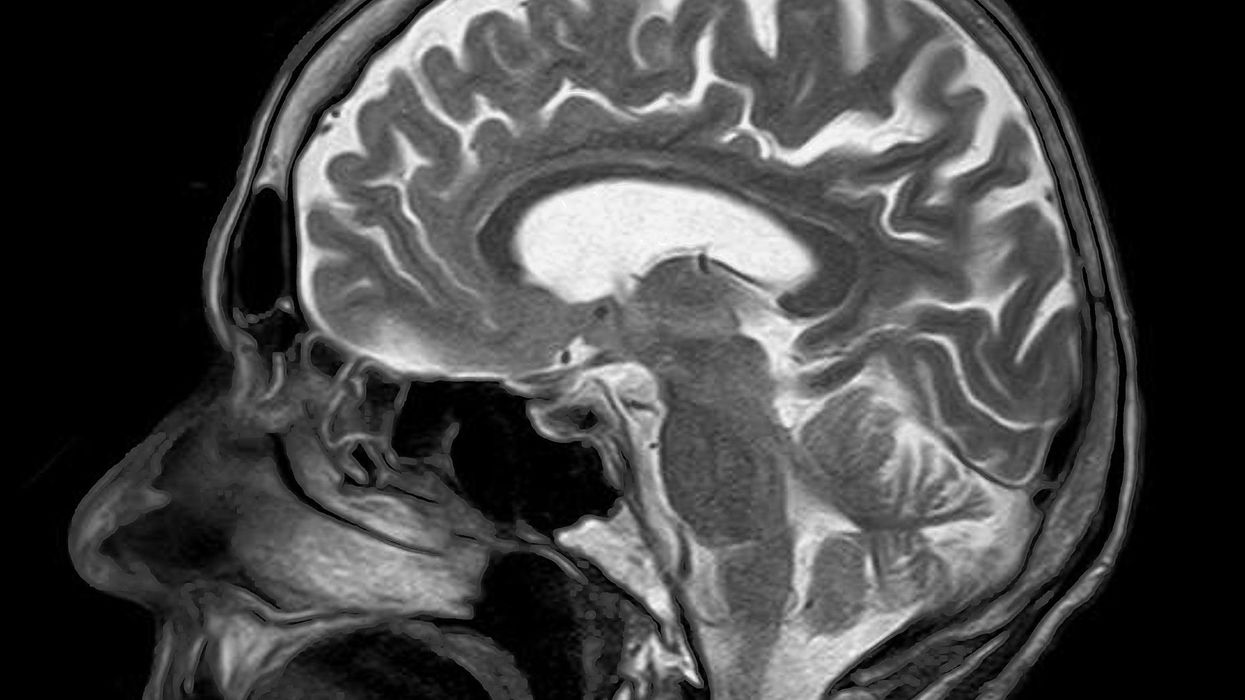
Scientists have just built a working computer using human brain tissue
2023 has been defined by many things, but the rise in AI has been one of them.
Many of us have begun to wonder when the day computers become smarter than humans will come, but there is no computer even remotely as powerful as the human brain.
This is because of the neuron’s efficiency in serving as both a processor and memory device, rather than the physically separated units in most modern computing devices. The human brain contains roughly 86 billion neurons, and up to quadrillion synapses.
Over the years, there have been attempts to make computers function like the human brain, and a new step is taking this pursuit further.
How do you ask? By integrating real human brain tissue with electronics.
It’s called Brainoware and the team is led by engineer Feng Goo of Indiana University Bloomington.
To test the device, the team fed the computer tasks like speech recognition and math problems such as nonlinear equation prediction.
Although it works, it was slightly less accurate than a hardware computer running on AI. But the research is an important step in a new kind of computer architecture.
Researchers from John Hopkins University have warned in a Nature Electronics commentary of the importance of keeping ethical considerations in mind when expanding this technology.
Lena Smirnova, Brian Caffo, and Erik C. Johnson caution, “as the sophistication of these organoid systems increases, it is critical for the community to examine the myriad of neuroethical issues that surround biocomputing systems incorporating human neural tissue.”
In 2013, Riken’s K Computer – then one of the most powerful supercomputers in the world – made an attempt to mimic the brain. It took 40 minutes to simulate one second of the activity of 1.73 billion neutrons connected by 10.4 trillion synapses – roughly one to two per cent of the brain.
Brainoware consists of brain organoids connected to high-density microelectrodes, using a type of artificial neural network known as reservoir computing. Electrical stimulation sends information into the organoid before Brainoware spits out its calculations in the form of neural activity.
To demonstrate the system, the researchers gave Brainoware over 200 audio clips from eight male speakers making Japanese vowel sounds and asked it to identify a specific voice.
After training Brainoware for just two days, it was able to identify the correct speaker with 78 per cent accuracy.
“It may be decades before general biocomputing systems can be created, but this research is likely to generate foundational insights into the mechanisms of learning, neural development and the cognitive implications of neurodegenerative diseases,” Smirnova, Caffo, and Johnson wrote.
“It could also help to develop preclinical models of cognitive impairment to test new therapeutics.”
The research has been published in Nature Electronics.
Sign up to our free Indy100 weekly newsletter
Indy100 is punchy, passionately progressive and covers trending, Viral content, Celebrities, Science & Tech and more, bringing audiences the latest Gen-Z guides, TikTok viral trends, influencer explainers as well as breaking news on essential topics. From the latest trends on social media to data reporting using maps and charts to tell complex stories in engaging ways, read it on Indy100. Follow Indy100 at the top of the article.
How to join the indy100’s free WhatsApp channel
News Related-
High court unanimously ruled indefinite detention was unlawful while backing preventive regime
-
Cheika set for contract extension as another Wallabies head coaching candidate slips by
-
Analysis-West's de-risking starts to bite China's prospects
-
'Beyond a joke' Labor won't ensure PTSD protections: MP
-
Formula One season driver ratings: Lando Norris shines as Max Verstappen nears perfection
-
Catalina golfer Tony Riches scores Guinness World Record four holes in one on same hole
-
Florida coach Billy Napier fires assistants Sean Spencer, Corey Raymond with expected staff shakeup ahead
-
Rohingyan refugee NZYQ accidentally named in documents published by high court
-
Colorado loses commitments of 2 more high school recruits
-
Queensland Health issues urgent patient safety alert over national bacteria outbreak
-
Townsville Community Pantry 'distressed' by fruit, vegetable waste at Aldi supermarket
-
What Is The Beaver Moon And What Does It Mean For You?
-
Labor senator Pat Dodson to resign from politics due to health issues
-
Hamas releases 11 more hostages, as Israel agrees to extend ceasefire
